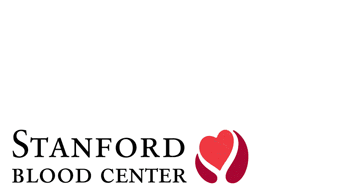Advance Care Planning: Saving the Doctor-Patient Relationship
By Kristin Stankus, Digital Community and Social Media Specialist
Dr. Jennifer Brokaw has a vision for the future of medicine and that vision involves saving the doctor-patient relationship through the practice of advance care planning. What is advance care planning? Simply put, it is helping  families have important health related conversations and navigate the often impersonal and complicated options available to them.
families have important health related conversations and navigate the often impersonal and complicated options available to them.
While creating her practice, Good Medicine based in San Francisco, Dr. Brokaw recognized the great importance in learning how to talk to patients about making complex and often emotional health care decisions and the need for an advocacy system to prepare them for end of life care. After attending a talk by Dr. Bud Hammes, who developed an advance care planning program at Gunderson Lutheran Hospital, she new she wanted to become a champion for the cause. Dr. Brokaw comments that “In the ER and in my own personal experience, I saw that most patients with serious illness felt lost in our complex and fragmented medical system. At the most difficult times of their lives, people often feel vulnerable instead of cared for. I started Good Medicine because I saw a real need for this kind of service. Everyone should have a healthcare professional in their family when their health is in danger.”
Her passion for this subject came from her years of experience in the emergency room. As an ER physician, Dr. Brokaw recalls one particularly emotional encounter with a family:
An elderly man was brought to the ER very ill with pneumonia. He had had a stroke the year before. His children accompanied him to the hospital and were very clear that they did not wish for their father to receive aggressive treatment. Two weeks later, the man was again rushed to the emergency room, having trouble breathing. One of the children that was present during the last visit expressed that the man needed to be put on a ventilator to keep him alive. When I questioned this decision, based on the conversation with the family two weeks prior, the son said that his sister was in China and would not be able to say goodbye so they needed to keep her father alive. I asked if he could call his sister on her cell phone. Once she was on the phone, they put it to the barely conscious man’s ear and his face lit up. As tears streamed down his face, he was able to say goodbye to his daughter who was so many miles away. Once the daughter in China said her goodbyes, she told me that she did not want her father to be kept alive by a ventilator in the ICU.
As a result, Dr. Brokaw treated the man with comfort care for the remainder of his life, which was what he and the family wanted all along. It was this particular instance that “made a light bulb go off” for Dr. Brokaw. She was experiencing first hand how difficult it can be to make sound decisions under the pressure and emotions that can be experienced in such end of life situations. For this reason, it so important to have a plan in advance, and to have an unbiased advocate assist in the creation of that plan.
Advance care planning is comprised of a two-part advance directive. Step one involves educating the patient about their choices, both benefits and burdens. Step two is to relay those wishes to family or the dedicated medical surrogate. These two steps allow an in-depth conversation to take place in the presence of a medical professional that is an unbiased and trained facilitator.
Over the four years Good Medicine has been in existence, Dr. Brokaw and her team have assisted close to 100 people, all of which have been extremely satisfied with the guidance they received. Dr. Brokaw tell us “studies have shown that families that have gone through advance care planning have had far less complicated grief, less financial distress, and are emotionally more healthy after the person dies.” She hopes that “we will soon overcome the cultural barrier to having these difficult medical conversations. This seems to be happening with baby boomers, as they are aging so rapidly. Baby boomers learned a lot by watching their parents age and die. They want to do things differently.“
Several non-profits have surfaced in recent years to assist families, and Dr. Brokaw recommends that anyone interested in learning more about advance care planning visit one or all of the following web sites:
https://www.prepareforyourcare.org
http://theconversationproject.org
To see Dr. Brokaw speak on advance care planning as part of the Stanford Blood Center Café Scientifique speaker’s series, visit http://youtu.be/oS5XxhI7-8Y.
